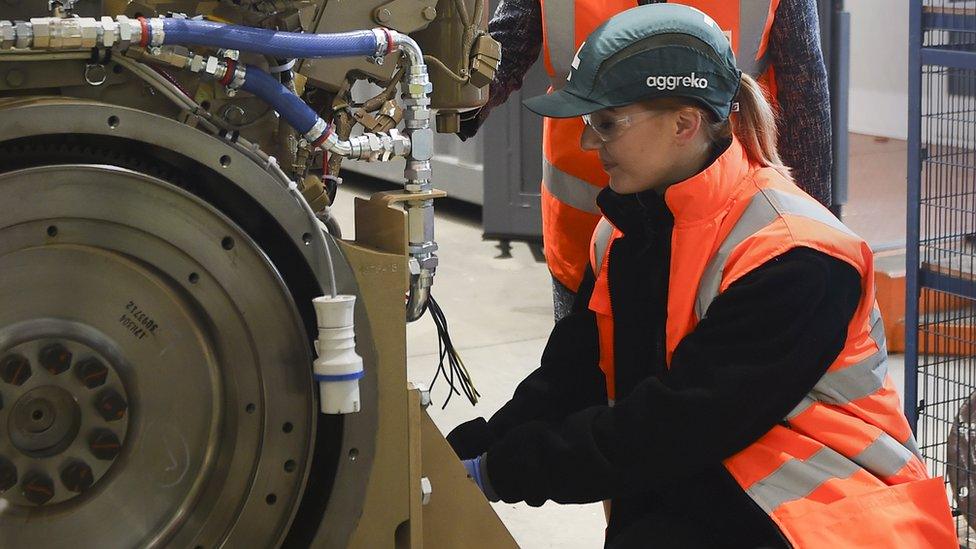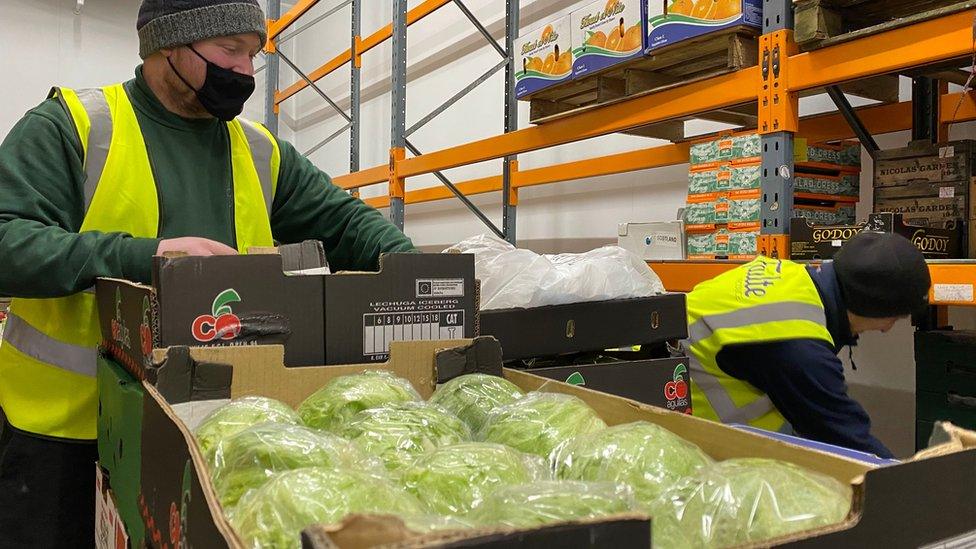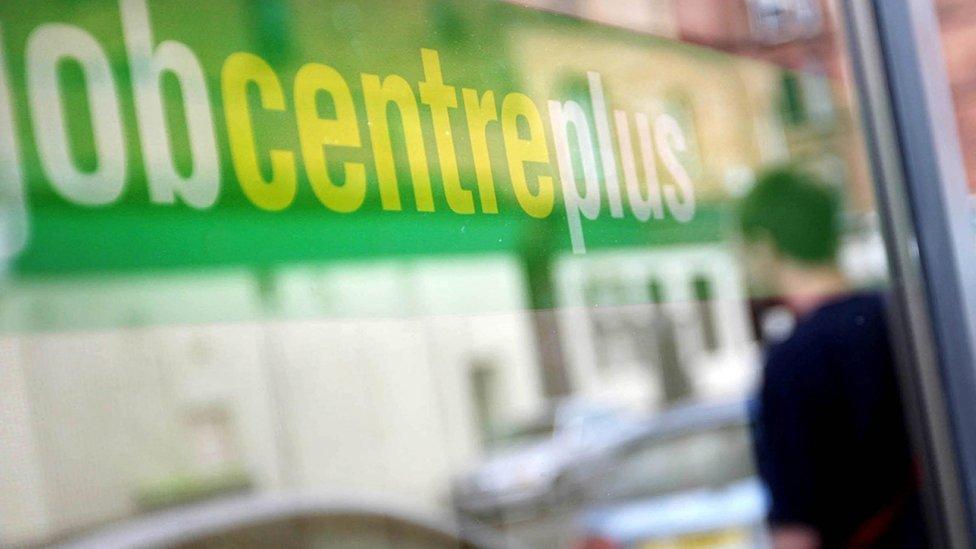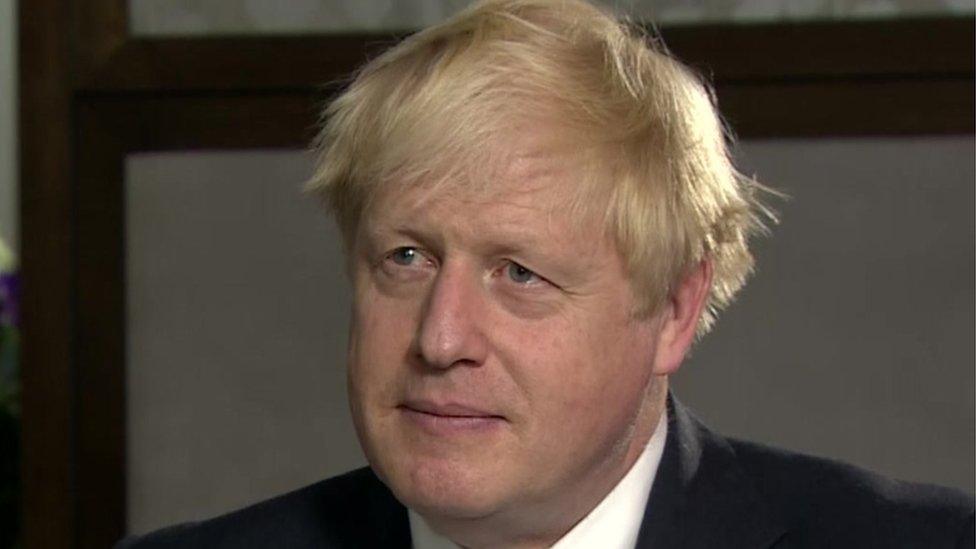Job vacancies rise as candidate numbers 'plummet', says RBS report
- Published
- comments

Engineering and construction are among the sectors with the highest rate of vacancies
Job vacancies are nearing an all-time high and Scotland has seen a surge in employment, despite warnings that the number of candidates has "plummeted".
The Royal Bank of Scotland's report on jobs recorded the third-sharpest growth of new appointments on record.
But the survey of businesses in September found the second-fastest decline of applicants for permanent jobs since records began in 2008.
Firms cited Brexit and pandemic uncertainty as the key factors.
Candidates for temporary jobs decreased for the seventh consecutive month, although the decline slowed from the substantial drop in August, according to the bank's report.
Starting salaries for people in new jobs and the hourly rate for temporary workers both rose once again, although so did the rate of inflation.
The industries with the highest rate of vacancies were the IT and computing sectors, followed by engineering and construction, and then the accountancy and financial sectors.
Meanwhile, the hotel and catering industries had the fastest rise in demand for temporary staff, followed by IT and computing.

Companies blamed Brexit and Covid for the decline in applicants for permanent jobs
Scottish government External Affairs Secretary Angus Robertson told BBC Good Morning Scotland that Brexit was to blame for much of the challenges in the labour market.
He said: "It's part of the more general population challenge that we have in Scotland, it's that Brexit has turned off the tap, seen a significant number of people return to the European continent, and there are simply not enough people living here to fill important roles in our economy.
"The UK government is pretending that this is not a serious problem and is certainly denying that Brexit has a significant role in it."
Post-Covid recovery
Mr Robertson met immigration minister Kevin Foster this week, but said he refused to agree to any of the "top level" requests from the Scottish government, including a 24-month worker visa programme.
Boris Johnson has previously said he is "not worried" about the current jobs gap and rising prices in the UK, saying supply chains will sort themselves out "rapidly".
The prime minister has said the economy was facing the "stresses and strains" of a post-Covid recovery.

Food businesses have faced challenges trying to recruit workers
The Royal Bank of Scotland said labour shortages were likely to become more pronounced over the coming months, possibly posing "significant challenges" for companies hoping to fill roles and expand their operations.
The bank's chief economist Sebastian Burnside, said: "Scotland saw a further rapid uplift in hiring activity during September, with the rates of increase in both permanent placements and temp billings easing only slightly from the all-time records seen in August.
"This rounded off a third quarter of unprecedented hiring activity as the Scottish labour market continues to rebound.
"Meanwhile, vacancies for both short-term and permanent staff rose at near-record rates during September, but recruiters widely reported skills shortages as the supply of candidates continued to plummet."
Related topics
- Published17 August 2021

- Published5 October 2021

- Published6 August 2021
